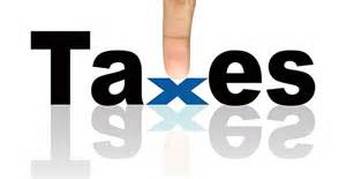 1. What documents do I need to give my CPA to do my taxes? The most common tax forms are: a W-2 from your employer and a 1099-INT for interest received. Mortgage interest statements and charitable contribution receipts are also very common to have. When in doubt save it and ask. 2. I didn’t earn much last year – do I still need to file taxes? In a nutshell, yes. Americans should file an income tax return even if their total income is below filing requirements. Complete the necessary forms because money can and is left on the table by those who think they don’t need to file. An example of this: reimbursable education credits. 3. Dependents, who can I claim? Your children may qualify but our society is finding more and more families with elderly parents or relatives now living with them. Significant others or friends overstaying their welcome on your sofa may be claimed, if they meet certain qualifications. 4. We have children now, what deductions or credits are available?
These credits are dependent on income, expenses and on qualifying children. 5. Our oldest is heading off to college, are there any tax benefits available for them? Education tax credits and deductions are available; these may include: tuition and fees, and books and supplies. Education tax benefits and deductions are available under the following tax provisions:
6. What paperwork do we need to keep and for how long? Federal income tax returns are here to stay. Copies of your tax returns and all backup documentation must be kept for three years. For additional information see http://taxadvantageous.com/Resources/Record-Retention.html If you don’t want a pile of papers one solution is to scan and save your documents as PDFs to a USB drive. Keep that drive with your other important papers (marriage certificates, birth and death certificates, my business card…) in a fire proof safe or a safety deposit box.
0 Comments
 You must be able to itemize your tax return to take charity deductions. If you can’t itemize this year you can bunch your deductions and make your contributions next year. There are different types of donations. Cash Donations If you donate cash and don’t receive a receipt you don’t have a deduction. You can no longer deduct cash donations. You must have a cancelled check , bank record or receipt from the charity regardless of the amount you donate. If the donation is more than $250 a receipt is always REQUIRED. Non Cash Donations These can be shoes, clothes, books, furniture and appliances you donate. Unless in good condition the items will not qualify for a deduction. This means you need to add a notation labeling the condition of the donated items. You will also need a receipt from the charity along with your inventory. It is also a good idea to take pictures. Non Cash Donations over $500 but not over $5000 Your itemized inventory must also include when and how you came to possess the property. Examples are: purchase, gift, inheritance or exchange. Your records must also include original cost or other basis. Near Cash Donation These expenses occur when you make purchases for the benefit of the charity. Example buying supplies for Sunday school, canned goods etc. Besides having a receipt you must also have a receipt acknowledging the donation to the charity. Stock Donations Do you have stock that has appreciated in value? Give the shares to the charity. You wont have pay taxes on the capital gains and you will receive a charity deduction for the fair market value of the shares on the day of the gift. Source: The Tax Network Photo:Pexels  Are your investments subject to the 3.8% Net Investment Tax? It targets things like vacation homes and investment properties owned by high income individuals who exceed the threshold. This law requires a tax of 3.8% on the lesser of either your net investment income or the amount by which your modified adjusted gross income (MAGI) exceeds a certain threshold.
Here’s a few examples of what is generally included:
Please make sure to consult your personal CPA with question on the Net Investment Tax and how it pertains to you. But always BE TAX ADVANTAGEOUS! Source: American’s Tax Solutions / www.irs.gov |
AuthorRhonda A. Mannes, Archives
December 2018
Categories
All
|


 RSS Feed
RSS Feed